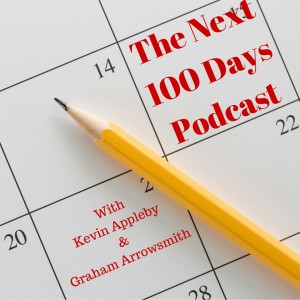
Selling your business with Phil Jepson
Today we have Phil Jepson with us, talking about selling your businesses. He has a business that sells other people's business when they get to the point where they cab't pass it on to someone else. He buys the businesses with a view to building a family of businesses - to advance, hold and then (later down the line) maybe sell.
Buying and selling your business
Phil ends up with a fairly diverse portfolio of businesses. There's different schools of thought as to whether this is a good or bad thing. Some believe this is good as, during economic decline for instance, it can shelter you from the storm a bit. Others think you should focus on one industry or area. Phil looks at businesses that are across a wide range of sectors but they will end up sitting in 2-3 areas or groups within his portfolio.
The key thing about the way Phil approaches his process is this:
The process of acquiring business (or even the process before the acquisition) is about getting to know the business owner. Having a rapport with the business owner is really important. Phil wants to know that they have a shared set of values with him, because he doesn't want any nasty shocks. Ultimately, the business will reflect the owner so, if you get to know the business owner, you inevitably get to know the business.
The other thing is that actually doing a deal has lots of moving parts. There's a great opportunity for the deal to go off the rails and so knowing the business owner and having a relationship with them makes it more likely that the deal can survive the slings and arrows coming its way.
http://thenext100days.org/wp-content/uploads/2020/05/Win-win-win.mp4
How do you value a business before buying and selling?
http://thenext100days.org/wp-content/uploads/2020/05/Man-United.mp4
In terms of valuing businesses, there are certain touch stones that you can use and, on top of that, there's a layer of art as supposed to science. This is because there isn't actually a single universally accepted process for valuing a training business. People do it in different ways.
What type of businesses are you intent on buying?
First criteria is size. Much like Goldilocks and the Three Bears, Phil looks for 'not too small and not too big'; generally, between £1 million and £10 million revenue. On the basis that a £5 million business is generating half a million pounds, it's sort of knocking on the door of Phil's criteria. Now Phil doesn't have a bank of mum and dad, so to speak. But, he does have a circle of trusted people who can invest and trust his judgement as to whether the purchase is good or not - a bank of friends we may say.
Covid-19 crisis; is it likely that the valuations are way down as a result?
Yes, to a certain extent. If it was a good business before lockdown started, then the likelihood is it will be a good business once it has ended and normality can slowly resume. When you're dealing with SMEs, it's a lot more personal. Whilst business values are on the floor, you can't (essentially) go round like a hoover like other wealthy business people are currently doing.
Right now, when looking at buying a business, the first question to ask is viability - is this business going to survive? If you get through that, then normally you'll be looking at the accounts of a business from the last three years. Not just the past couple of months or up to sixth months. It's about forming a balanced view.
http://thenext100days.org/wp-content/uploads/2020/05/Manufacturing-and-recruitment.mp4
One of the main things that unites a lot of SMEs Phil deals with is that they do very little marketing and sales. They will pick up the phone when it rings but in terms of going out into the market and generating positive interest, a lot of them don't do it. When it comes to marketing, for a lot it is non-existent. When Phil buys the business - that's not rocket scientist.
view more
More Episodes
#391 John Lamerton – The False Exit
 2023-09-15
2023-09-15
 2023-09-15
2023-09-15
#383 – Carole Asselin – Digital Scrapbooking
 2023-07-21
2023-07-21
 2023-07-21
2023-07-21
#382 John McClarey – Business Fives
 2023-07-14
2023-07-14
 2023-07-14
2023-07-14
#381 Graham Arrowsmith – Creating a Summit
 2023-07-07
2023-07-07
 2023-07-07
2023-07-07
012345678910111213141516171819
Create your
podcast in
minutes
- Full-featured podcast site
- Unlimited storage and bandwidth
- Comprehensive podcast stats
- Distribute to Apple Podcasts, Spotify, and more
- Make money with your podcast
It is Free
- Privacy Policy
- Cookie Policy
- Terms of Use
- Consent Preferences
- Copyright © 2015-2024 Podbean.com





